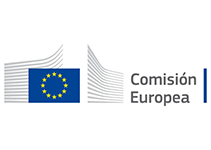
27 de Junio, 2023
08 de Noviembre, 2023
11:59 PM
Safe & Sustainable by Design (SSbD) packaging and single use device solutions for healthcare products- HORIZON-JU-IHI-2023-04-05-two-stage
Investigación
"Escuela de Medicina y Ciencias de la Salud - Escuela de Ingeniería, Ciencia y Tecnología"
Comisión Europea
4.500.000 EUR
The project is expected to strengthen and make more competitive the European healthcare industry by positioning it at the forefront of the development of medical technologies, products, and services of the future - those that generate less waste, require less waste treatment, have reduced carbon footprints, increased circularity, and other approaches that reduce the environmental impact of healthcare.
ExpectedOutcome:
The project should contribute to the following outcomes:
1,Paradigm shifts in standard materials to shape products of the future (e.g. reduced material usage by pushing the boundaries on material specifications such as down gauging foils/films, blending virgin and recycled polymers, inclusion of more sustainable materials as newly proposed from material suppliers, etc.).
2,Development of new and effective technologies, products and innovations that generate minimal waste from packaging and enable the recycling of used devices (including devices which have been in contact with human tissues, i.e. infectious waste1) throughout their lifetime of use in healthcare systems, by applying the principles of the safe & sustainable by design (SSbD) framework.
3,Alignment with the European Packaging and Packaging Waste2 and Ecodesign of Sustainable Products3 Directive proposals.
4,Such innovations – i.e. packaging materials & single-use medical devices (e.g., pens used for insulin injection, surgical trocars) are easily accessible in sufficient quantities to healthcare providers (e.g., hospitals, medical analysis laboratories, caregivers, and patient associations/organisations).
5,Environmentally-friendly packaging and device materials are designed from sustainable raw components and manufacturing processes with minimal carbon footprint.
6,Selective sorting procedures, implementable by healthcare providers.
7,The creation of short circuits for recycling packaging and device waste from healthcare providers’ locations.
Healthcare systems more widely adopt a lifecycle assessment approach, enabling healthcare to become a more sustainable industry with closer and more circular recycling loops for packaging as well as single-use devices, including those which may have been contaminated (i.e. infectious waste).
Proposal page limits and layout: described in Part B of the Application Form available in the Submission System
at stage 1 of a two-stage Call, the limit for RIA short proposals is 20 pages;
at stage 2 of a two-stage Call, the limit for RIA full proposals is 50 pages.
Documents: (Check them on the webside).
IHI JU Evaluation form for Research and Innovation Actions (single and two-stage Calls)
IHI JU Proposal template (RIA/SP) - Part B
•Colombia is eligible as a third country, for this it must participate with the role of partner together with a consortium with at least three entities from different European/associated countries).
OBJETIVO/DESCRIPCIÓN
The project is expected to strengthen and make more competitive the European healthcare industry by positioning it at the forefront of the development of medical technologies, products, and services of the future - those that generate less waste, require less waste treatment, have reduced carbon footprints, increased circularity, and other approaches that reduce the environmental impact of healthcare.
REQUISITOS CLAVE
ExpectedOutcome:
The project should contribute to the following outcomes:
1,Paradigm shifts in standard materials to shape products of the future (e.g. reduced material usage by pushing the boundaries on material specifications such as down gauging foils/films, blending virgin and recycled polymers, inclusion of more sustainable materials as newly proposed from material suppliers, etc.).
2,Development of new and effective technologies, products and innovations that generate minimal waste from packaging and enable the recycling of used devices (including devices which have been in contact with human tissues, i.e. infectious waste1) throughout their lifetime of use in healthcare systems, by applying the principles of the safe & sustainable by design (SSbD) framework.
3,Alignment with the European Packaging and Packaging Waste2 and Ecodesign of Sustainable Products3 Directive proposals.
4,Such innovations – i.e. packaging materials & single-use medical devices (e.g., pens used for insulin injection, surgical trocars) are easily accessible in sufficient quantities to healthcare providers (e.g., hospitals, medical analysis laboratories, caregivers, and patient associations/organisations).
5,Environmentally-friendly packaging and device materials are designed from sustainable raw components and manufacturing processes with minimal carbon footprint.
6,Selective sorting procedures, implementable by healthcare providers.
7,The creation of short circuits for recycling packaging and device waste from healthcare providers’ locations.
Healthcare systems more widely adopt a lifecycle assessment approach, enabling healthcare to become a more sustainable industry with closer and more circular recycling loops for packaging as well as single-use devices, including those which may have been contaminated (i.e. infectious waste).
Proposal page limits and layout: described in Part B of the Application Form available in the Submission System
at stage 1 of a two-stage Call, the limit for RIA short proposals is 20 pages;
at stage 2 of a two-stage Call, the limit for RIA full proposals is 50 pages.
Documents: (Check them on the webside).
IHI JU Evaluation form for Research and Innovation Actions (single and two-stage Calls)
IHI JU Proposal template (RIA/SP) - Part B
•Colombia is eligible as a third country, for this it must participate with the role of partner together with a consortium with at least three entities from different European/associated countries).
